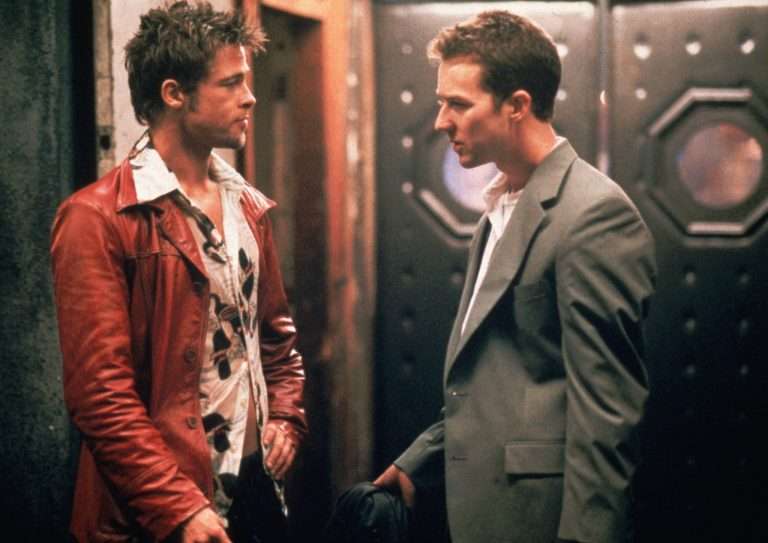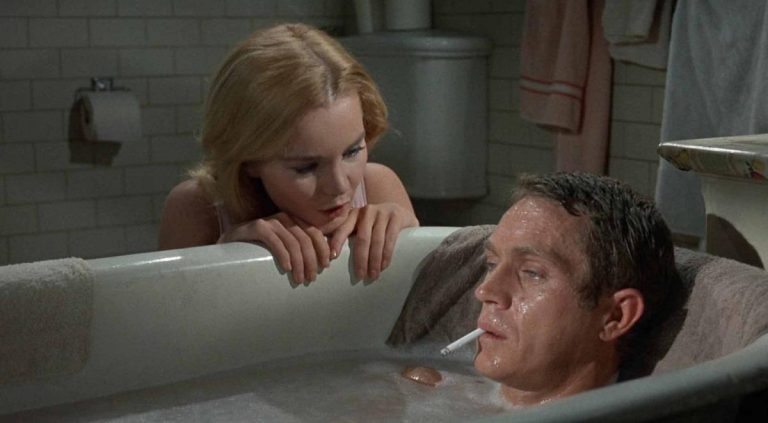Here is a captivating drama film that immerses the viewers into the intricate world of gambling, born from the creative collaboration of celebrated writer-director Paul Schrader and producer Martin Scorsese.
Released in 2021, this movie portrays a story of masculinity, hope, and despair that echoes Schrader’s previous works, including the legendary screenplay for the 1976 classic Taxi Driver. Nevertheless, this time, Paul explores the intricate aspects of human nature and the long-lasting repercussions of our choices.
Below, we will analyze the plot, characters, and performances to reveal the subtle nuances of this masterpiece.
The Card Counter’s Plot
William Tell, a skilled gambler who employs card-counting strategies, is the film’s main character. As a marine and a prisoner at an Abu Ghraib military detention facility, he developed this expertise.
He maintains a reclusive lifestyle while traveling to several casinos and participating in low-stakes poker tournaments to earn a living utilizing his card-counting abilities. The realm of physical casinos is highlighted in his article, but it’s important to note that there are now online platforms, such as cryptocurrency casino sites, that let gamers have a Vegas-style experience with only a few mouse clicks.
Will Tell’s Past vs. Present
During all the running time, Tell is forced to confront his past and come to terms with the trauma he experienced during his time in the military. In flashbacks, we see the horrific abuse and torture that Will witnessed and participated in at Abu Ghraib, and how it has left him emotionally scarred.
In the present, Will maintains a rigid routine and keeps his emotions in check, refusing to become attached to anyone or anything. However, when he meets a young man named Cirk who is seeking revenge against a former military contractor, Will begins to open up and form a bond with him. Along the way, he must navigate a web of deceit and betrayal while trying to protect those he cares about.
The Story’s Main Conflicts
In the film “The Card Counter,” the three major characters, Will, La Linda, and Cirk, form a special partnership. This is a result of the cast’s superb performances and the intricate plot that gives the narrative additional depth and complexity.
At a casino where time seems to stand still, the majority of the story is set. There, the three encounters a variety of events, and the absence of windows and clocks provides an endless present that fits very well with Tell’s routine.
Movie themes like guilt, retaliation, and forgiveness are explored as the plot develops. The protagonist, William, is compelled to face his past and make crucial choices for his future.
Redemption
Redemption is one of the movie’s major plot issues. Because of this, Will Tell makes an effort to atone for his previous behavior at Abu Ghraib and discover a method to deal with his remorse in the present. Tell is eventually forced to face the trauma for which he has been searching for a new meaning in life after meeting Cirk, though.
Trauma & Its Effects
Another key theme of the movie is the impact of trauma on Will and Cirk. Both characters have experienced significant trauma in their lives, and Schrader expertly waves how it has affected them in different ways. Tell is haunted by the atrocities he committed as a soldier, while Cirk struggles with the aftermath of abuse he suffered as a child.
Family and Connection
Will and his father had a tumultuous relationship, as the film makes clear. He is reluctant to make new friends, yet he can’t help but be pulled to Cirk and La Linda. Hence, seeking connection with people and alternative families are key themes that the movie examines in depth.
Responsibility & Morality
The Card Counter also addresses moral and ethical issues, particularly as they relate to conflict and the military. William must face the consequences of his acts as a soldier, accept responsibility for them, and consider if he has the ability to atone.
The Nature of Gambling
The gaming industry and its role in society must be discussed in this evaluation; otherwise, it would not be fair. The movie depicts the highs and lows of gambling as well as the emotional and psychological toll it can have on people. While Tell utilizes his poker abilities to his advantage in other aspects of his life, it also examines the connection between gambling and power.
Flashbacks of Schrader’s Other Works
The Card Counter by Paul Schrader differs from his other “guy at a table” pictures in a number of important respects, but sharing many parallels with them, notably in how it explores men who are battling their inner demons and a sense of alienation from society.
Will Tell’ Story
William is a man who has discovered a method to deal with his history and is attempting to live a life of discipline and self-control, which is a significant distinction. In Light Sleeper, he is a more likeable character than Travis Bickle or John LeTour. Tell becomes more sympathetic thanks to Isaac’s acting than some of Schrader’s past antiheroes.
Gambling Scene
In contrast to Schrader’s earlier films like Taxi Driver and Light Sleeper, The Card Counter offers a unique perspective by immersing viewers in the world of casinos and professional card playing.
Dealing with Guilt
In addition, The Card Counter handles themes of guilt and atonement differently from its rivals. Will Tell feels that the film provides him with closure and catharsis. Nonetheless, he finds some serenity in his efforts to make apologies and lead a disciplined life. The latter may never totally free himself from his past.
Wrapping Up
The Card Counter is a compelling movie that simultaneously builds on Schrader’s earlier work and stands on its own as an intense drama, to sum up this assessment. The film’s excellent performances and well-written plot will definitely appeal to those who like character-driven stories and psychological thrillers.
Unconformity is another character-drama that fans interested in similar films should see since it likewise covers themes of human development and self-discovery.






